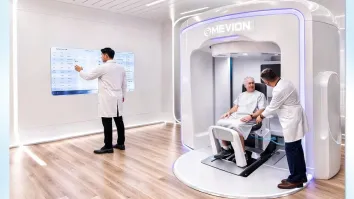
CUHK introduces non-invasive test for gastrointestinal inflammation
The invention can effectively differentiate common chronic gut disorders.
The Chinese University of Hong Kong (CUHK)’s Faculty of Medicine (CU Medicine) has introduced a non-invasive test for early diagnosis and intervention of gastrointestinal tract inflammation.
The university said the invention can effectively differentiate common chronic gut disorders and is expected to minimise the need for endoscopies.
“The incidence of IBD (inflammatory bowel disease) is rising rapidly in Asia, and it is expected that the number of patients in China will exceed 1.5 million by 2025,” Siew Ng, Director of the Microbiota I-Center, said.
Delayed treatment can lead to chronic inflammation and ulcers in the digestive tract, and severe cases may require removing a damaged intestine.
By utilising nearly 6,000 faecal samples collected from different regions and ethnicities, the research team has developed the world’s first droplet digital polymerase chain reaction (ddPCR) test targeting selected unique bacterial species.
The test can differentiate irritable bowel syndrome (IBS) and IBD and will be ready for clinical use in 2027.
“We found that IBD patients had more toxin-producing bacterial genes in the gut, such as Adherent-invasive E. coli and Proteus mirabilis, and they lacked a variety of bacterial species with anti-inflammatory functions,” Zheng Jiaying, Postdoctoral Fellow of the Department of Medicine and Therapeutics at CU Medicine said.
To transform the findings into clinical applications, the research team developed multiplex ddPCR technology to facilitate rapid, effective IBD diagnosis. Validation in independent cohorts and a public dataset showed a sensitivity of 88% and specificity of 89% for IBD diagnosis.



















 Advertise
Advertise






